Master Beppe Mokuza reminds us that life itself is a continuous gift. Life offers sun, rain, and wind to all beings alike, without distinction between good and bad. This act of generosity allows us to live—and we must learn to do the same.
Giving also means receiving: as we offer something, we are already receiving something in return. In nature, there is a perpetual rhythm of giving, receiving, and resting. After the harvest, the land regenerates; and when it cannot give, it is we who nourish it. It is a reciprocal interaction of exchange and support.
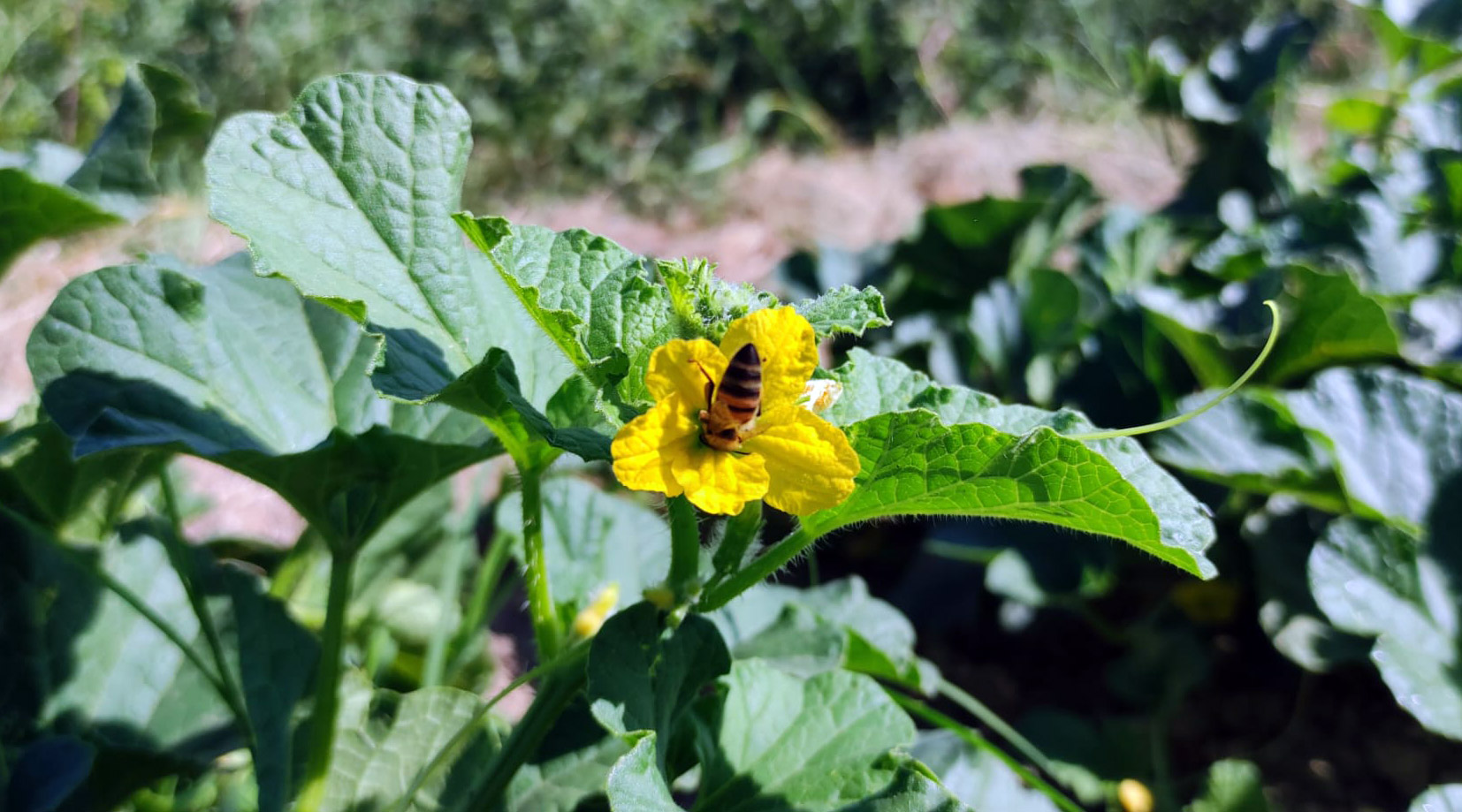
At Gyogenji Temple, the practice of Total Giving is expressed through the loving care of nature: we protect the soil from pollution and overexploitation, dedicating time and attention. In return, the land gives back generous and healthy fruits, a symbol of its gratitude.
Through samu—work performed for the community—we share this philosophy with those who visit us, working together in the garden, the orchard, or with the bees.
In doing so, we learn to be generous and in harmony with nature, nourishing not only the Earth but also ourselves.
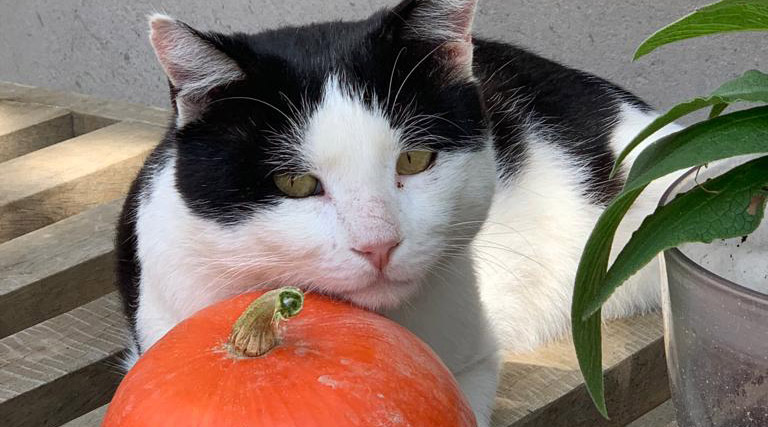
The humanitarian project integrates:
“Living Interdependence” is a project of the Bodai Dojo Zen Association, supported by the Italian Buddhist Union, aimed at responding concretely to the ecological and social crisis affecting our territory as well.
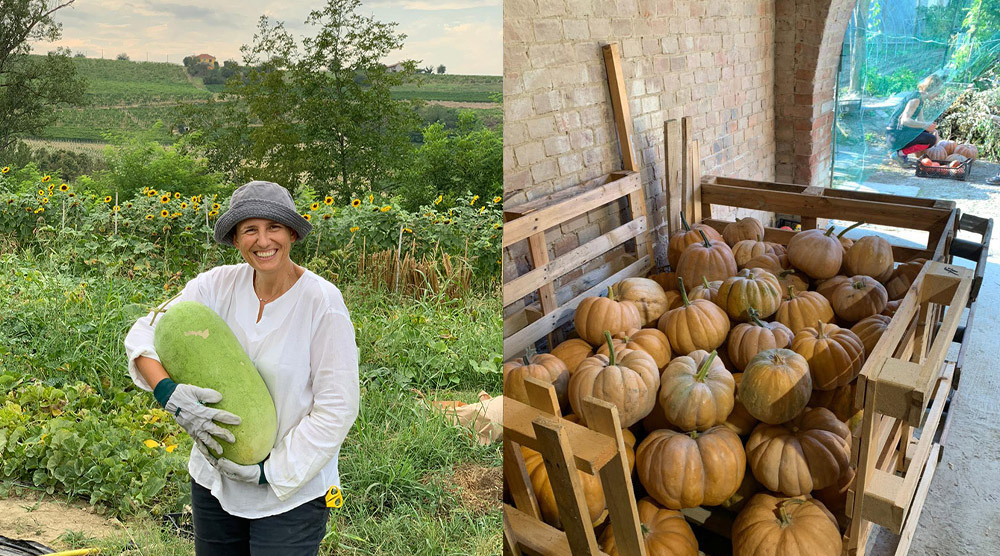
Sustainable agriculture
Our main objectives include:
The project is rooted in a simple yet profound principle: to rediscover the interdependence between human beings and the environment, by making daily, concrete choices that protect life, regenerate ecosystems, and strengthen collective awareness.
For years, we have cultivated and preserved our own organic seeds, selected directly from the Temple’s vegetable garden. Each season, we harvest the best fruits to conserve healthy seeds, adapted to our soil and local climate.
Alongside traditional varieties, we experiment each year with new fruits and vegetables to enrich biodiversity and offer produce increasingly connected to the land and our agricultural research.
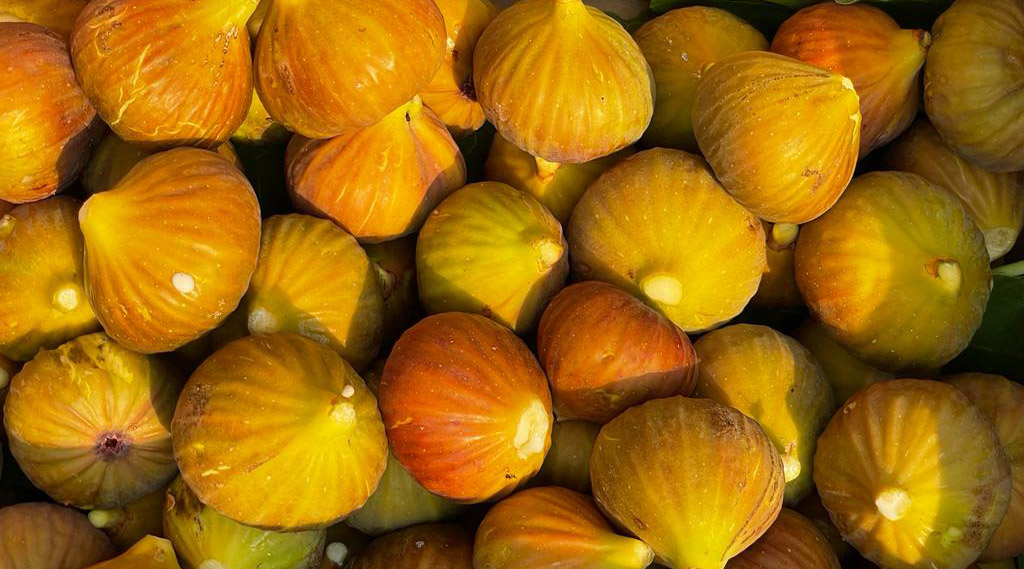
In summer, the harvest fills our garden: zucchinis, tomatoes, peppers, lettuce, eggplants, and more—all growing naturally, without forcing, and with respect for the Earth.
Our creations
From the land and daily labor, the Temple’s products are born—made with care and attention:
Each product reflects the authentic taste of shared labor, the land, and simplicity.
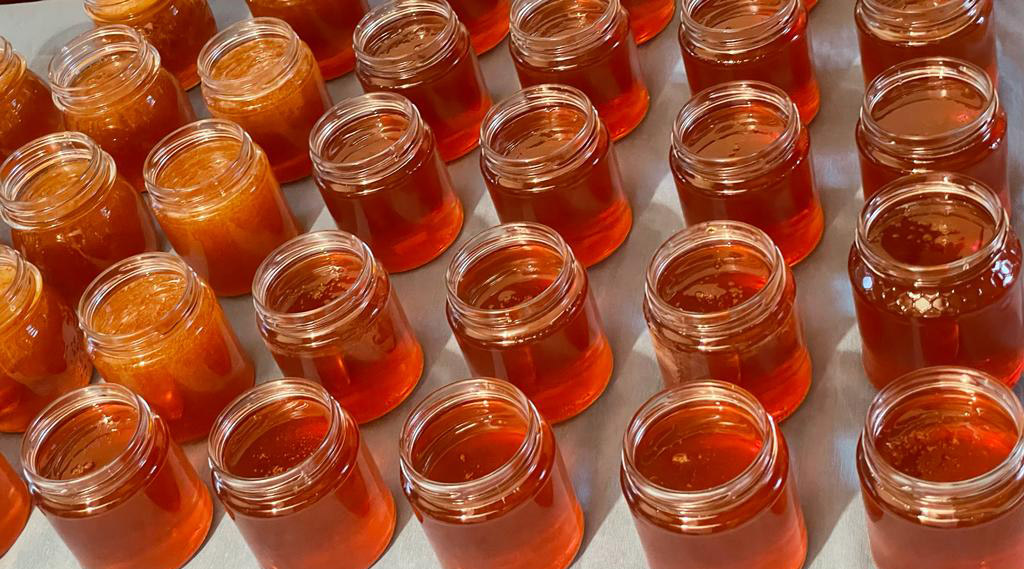
They are offered as a gesture of gratitude to those who support the Temple through donations or crowdfunding campaigns.
With your support, you help grow a way of life in harmony with nature.
“When you prepare meals, let your heart be vast and without preferences. See all beings as your family.” Tenzo Kyōkun, Dōgen Zenji.
At Gyogenji, caring for the Earth and preparing food are part of the same practice. The garden follows organic methods and offers seasonal vegetables, brought to the kitchen with care and respect.
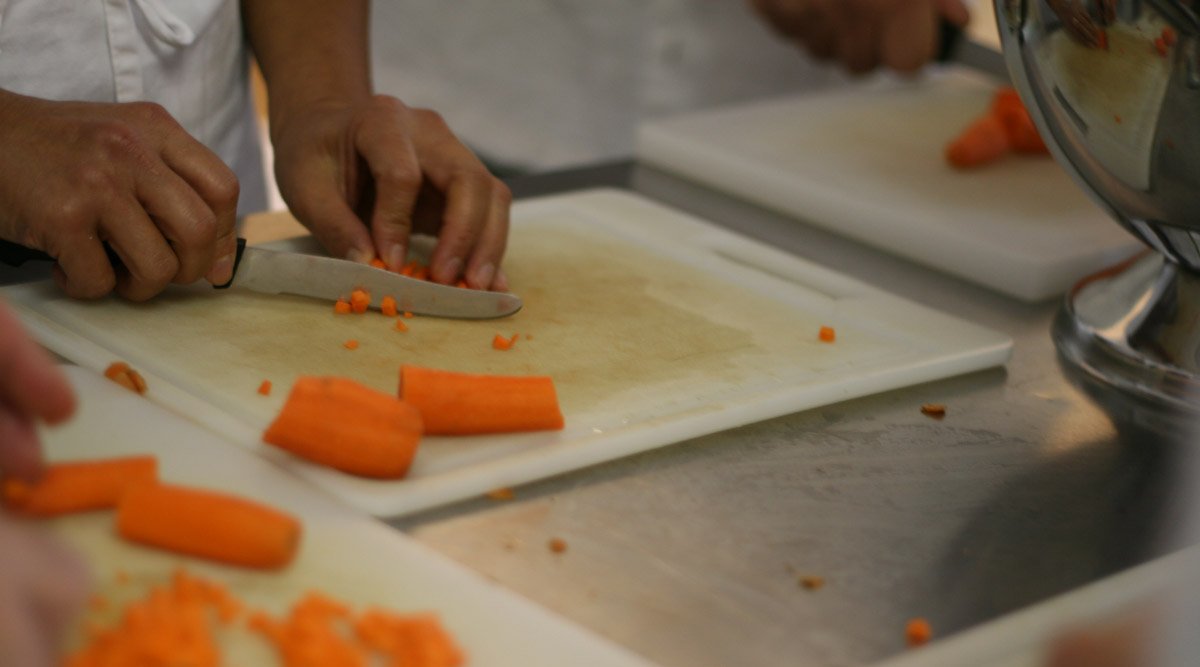
Our community has always cared for people through food, because what we eat becomes part of who we are. The garden and the kitchen are one: care for the Earth continues at the stove, where flavor, color, and the seasons meet on the plate.
Meals are prepared simply and with variety—Mediterranean recipes, Asian flavors, or European dishes—always with the intention of creating food that nourishes the body and supports spiritual practice.
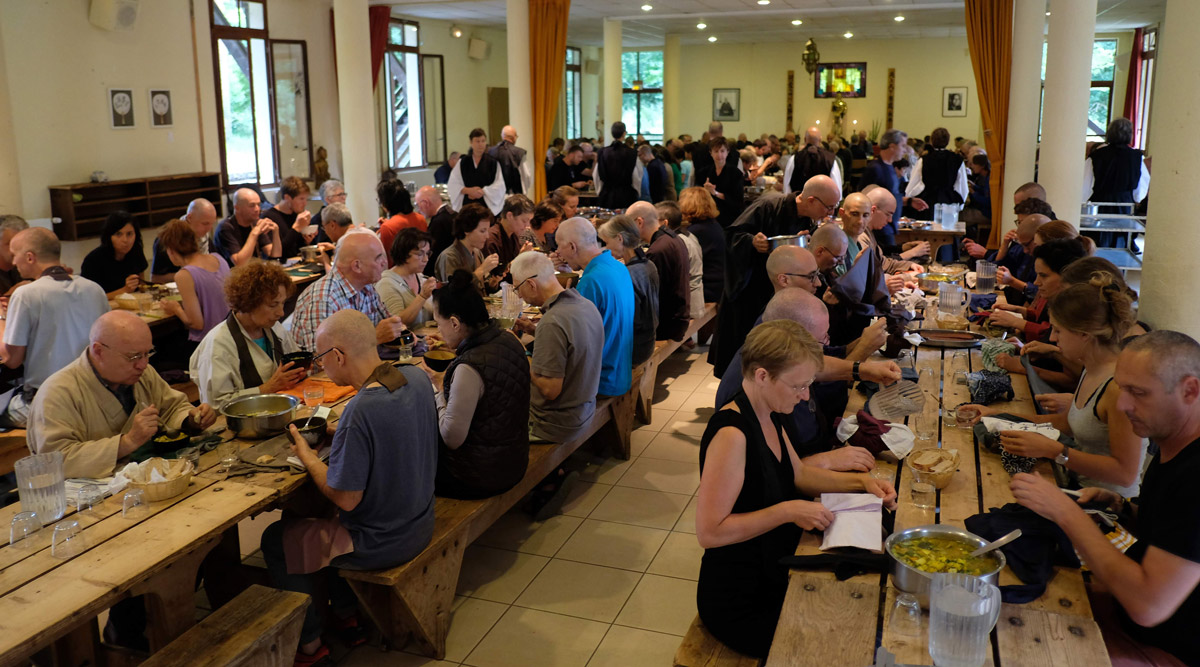
The Temple kitchen is also a place of sharing and joy, thanks to the work of volunteers who support the Tenzo, the temple cook.
Cooking together, cultivating together—this becomes a way of supporting one another and walking the Path. Each meal thus becomes part of the practice: simple, essential, and nourishing both inner life and everyday joy.
Our Association is building a solid network of collaborations with local organizations, institutions, and entities—based on the belief that dialogue with the region is essential for the success and sustainability of the project.

The Bodai Dojo Association together with members of the Confagricoltura
We already have fruitful relationships with the Municipality of Costigliole d’Asti, especially with the mayor and city council, who have expressed full support for the project, recognizing its innovative value in a region renowned for its food and wine heritage.
We also collaborate with key partners such as LIPU, Aspromiele, Monalfungo, Confagricoltura, and the Asti section of Legambiente, with the guidance of Dr. Doglio Cotto, a respected agronomist from the region.
These synergies strengthen the territorial and participatory nature of the project, nurturing a virtuous network that places nature, culture, and human relationships at the center.
The Etisos Foundation, an international organization specialized in evaluating social and environmental impact in accordance with the Sustainable Development Goals (SDGs) of the United Nations 2030 Agenda, certified the “Living Interdependence” project in 2024. The project was promoted by the Bodai Dōjō Zen Association with support from the Italian Buddhist Union’s 8xmille funding.